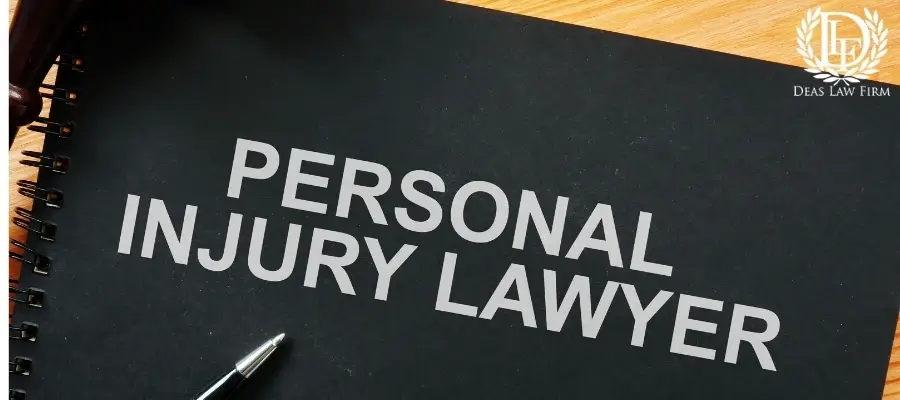Average Personal Injury Settlement in South Carolina

Determining an average personal injury settlement in South Carolina can be challenging, as each case is highly specific, with injuries and damages that require unique levels of compensation. Deas Law Firm knows that understanding how a personal injury settlement is determined is helpful, as you can gain accurate insight into the value of your personal injury claim following an injury. This information can set you up well for your claim.
The Factors That Determine a Personal Injury Settlement Amount in SC
In South Carolina, there are many factors that contribute to determining a personal injury settlement amount. These factors are reviewed to make sure the injured party is adequately compensated for their losses, including both their economic and non-economic damages. Below is an insight into these key factors:
- Nature and Severity of the Injury: In general, the more severe or permanent the injury is, the higher the potential settlement amount. Long-term and lifelong impacts of an injury, like disabilities or chronic pain, greatly increase a settlement amount, as the individual will face the consequences of the injury for a long period of time. These injuries can include traumatic brain injuries, loss of a limb, or spinal injuries.
- Medical Expenses: Current and future medical costs have a large role in determining a proper settlement amount. Hospital bills, surgery costs, rehabilitation and therapy expenses, and prescription medications all impact this number. Documentation of medical expenses is key in securing an accurate compensation amount.
- Lost Wages and Earning Capacity: If the injury caused you to miss work or lowered your earning capacity for the future, this loss may be covered in your settlement. For permanent disabilities and long-term injuries, compensation will often encompass future earnings losses as well.
- Pain and Suffering: Settlement determinations will also consider non-economic damages. A settlement can provide compensation for physical pain, emotional distress, and a reduced quality of life. While these damages are harder to calculate, there are many methods to determine an accurate monetary amount to cover these losses.
- Liability and Fault: Fault is a key component in determining settlement amounts and whether one is awarded at all. South Carolina uses the concept of modified comparative negligence to decide fault in claims. If you are found partially at fault, your compensation will be reduced by your percentage of fault. You cannot recover any damages if you are found to be more than 50% at fault, even if you are injured. This rule makes it important to gather and keep evidence that proves the other party’s liability.
- Insurance Policies: Insurance companies often have policy caps that impact and limit a settlement amount. If you are facing a serious injury that exceeds the policy limit, you may need to pursue additional compensation through other avenues, like the at-fault party’s personal assets.
- Emotional and Psychological Impact: Emotional trauma, like anxiety, depression, or post-traumatic stress disorder (PTSD), can increase settlement amounts when they are documented and certified by a mental health professional.
- Strength of Evidence: Clear and convincing evidence of negligence and wrongdoing improves your chances of a higher settlement value. Evidence can include police reports, medical records, photographs or videos of the car accident scene, and witness testimonies. If you do not have enough evidence, the settlement may be reduced.
To maximize your settlement amount, it is important that you keep detailed records of everything, including medical expenses, lost wages, and evidence of liability. Because of the state’s statute of limitations, it is vital that you act quickly to stay within the legal timeframe allowed for pursuing compensation for your losses. Finally, working with an experienced lawyer can greatly increase the likelihood of a successful outcome for your personal injury case.
FAQs
Q: How Is Pain and Suffering Calculated in a Personal Injury Claim?
A: In a personal injury claim, pain and suffering compensation covers the intangible losses connected to the injury, such as physical pain, emotional distress, and overall loss in quality of life. This is calculated by understanding the extent of these losses. Many factors are considered to comprehend the value of pain and suffering, such as:
- The severity of the injury
- The duration of recovery
- The impact on daily life
- Age and health of the victim
Q: How Much Do Lawyers Take From a Personal Injury Settlement in South Carolina?
A: How much a lawyer takes from a personal injury settlement in South Carolina depends on the payment agreement between a lawyer and their client. If a lawyer and client have agreed upon a contingency fee payment, that means the lawyer will receive a percentage of their client’s settlement amount as payment. However, they will only be paid if they successfully obtain a settlement or case award.
Q: Are Personal Injury Settlements Taxable in South Carolina?
A: In South Carolina, personal injury settlements are generally not taxable. However, exceptions exist, but they only apply to specific types of damages. In general, compensation that covers losses for medical expenses, pain and suffering, and emotional distress is not taxable. Compensation for lost wages may be taxed, but it depends on the specific situation.
Q: Is It Hard to Get a Settlement After a Personal Injury?
A: Whether getting a settlement after a personal injury is hard or not is dependent on the specific details of each case. In cases where there is clear liability, severe injury, and quality evidence supporting the case, obtaining a settlement may be straightforward. In cases where liability is disputed, injuries are hard to prove, and there is low-quality evidence, pursuing a settlement can be challenging.
Get in Touch With a Trusted Personal Injury Lawyer in South Carolina Today
As you seek a fair settlement amount to cover the full extent of your damages from your personal injury incident, it is important to partner with a personal injury lawyer. The skilled attorney from our firm knows how to obtain a compensation amount that fully covers your losses. Reach out to Deas Law Firm today to set up an initial consultation. Our lawyer is ready to fight on your behalf for fair compensation.

Schedule your free consultation today by calling (803) 775-7004 or by filling out our online form.
Contact Us Today
Ready To Speak With An Attorney?
Fields marked with an * are required
"*" indicates required fields


